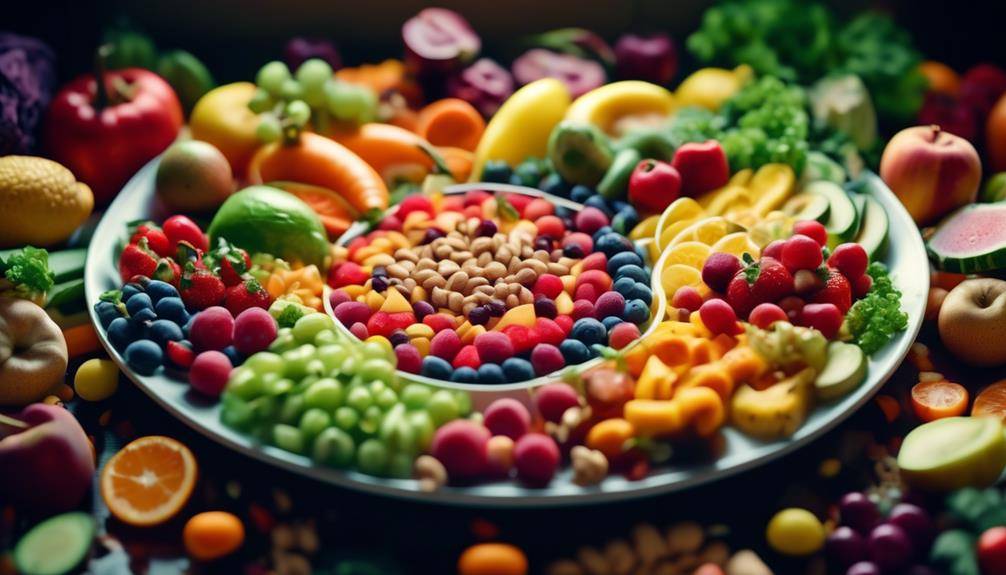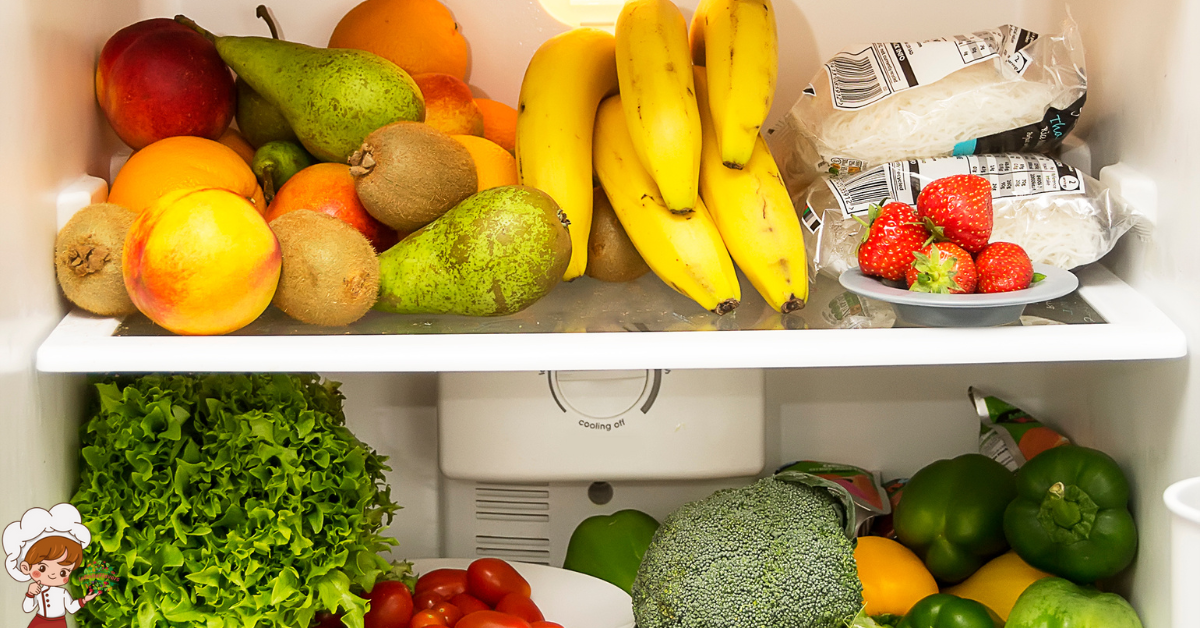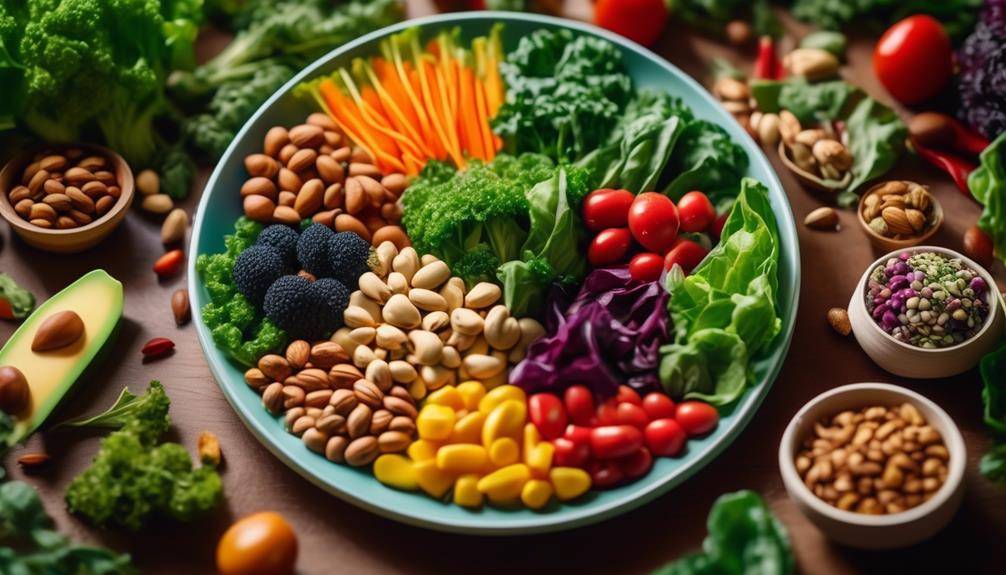The Best Supplements for Balanced Vegan Diet

Supplements for Balanced Vegan Diet; Are you a vegan looking to maintain a healthy and balanced diet? While a plant-based lifestyle offers numerous benefits, it is important to ensure you are getting all the essential nutrients your body needs. This is where supplements come into play. But which ones should you consider? In this discussion, we will explore a range of supplements that can support your vegan diet, from essential vitamins and minerals to omega-3 fatty acids and plant-based protein powders. So, if you want to optimize your nutrition and thrive on a vegan diet, keep reading to discover the key supplements you should consider incorporating into your routine.
Essential Vitamins for Vegans
To maintain optimal health on a vegan diet, it is essential for you to ensure you are getting all the necessary vitamins. One key vitamin that can be challenging for vegans to obtain naturally is vitamin B12. Vitamin B12 is primarily found in animal products, so meeting the B12 requirements on a vegan diet requires some planning and supplementation.
Fortunately, there are vegan-friendly options available to meet your B12 needs. One option is to take a B12 supplement. These supplements come in various forms, including tablets, capsules, and sublingual (under the tongue) drops. It is recommended to take a supplement that provides at least 25-100 micrograms of B12 daily or 2,000 micrograms weekly to ensure adequate intake.
Another option is to consume fortified foods that contain added B12. Many plant-based milks, breakfast cereals, and meat substitutes are fortified with B12. Check the labels of these products to ensure they contain a sufficient amount of B12 to meet your needs. Incorporating these fortified foods into your diet can be an effective way to increase your B12 intake.
Additionally, nutritional yeast is a popular vegan food that is often fortified with B12. This cheesy-tasting yeast can be sprinkled on dishes or used as a seasoning, providing a natural source of B12. Just be sure to check the label to confirm that the nutritional yeast you choose is fortified.
Important Minerals to Consider
When following a vegan diet, it is crucial to pay attention to important minerals that may be lacking in plant-based foods. These essential vegan minerals include iron, calcium, zinc, and iodine. While it is possible to obtain these minerals through a well-planned vegan diet, some individuals may benefit from nutrient-rich supplements to ensure they are meeting their dietary requirements.
Essential Vegan Minerals
One crucial aspect of maintaining a healthy vegan diet is ensuring an adequate intake of essential minerals. While a well-planned vegan diet can provide most of the necessary nutrients, there are a few important vegan minerals that may require special attention. Here are four essential minerals to consider and vegan sources to obtain them:
- Iron: Important for oxygen transport and energy production. Vegan sources include dark leafy greens, legumes, tofu, and fortified cereals.
- Calcium: Essential for bone health and muscle function. Good vegan sources include broccoli, kale, fortified plant-based milk, and tofu.
- Zinc: Necessary for immune function and protein synthesis. Vegan sources include legumes, whole grains, nuts, and seeds.
- Iodine: Vital for thyroid function and metabolism. Vegan sources include seaweed, iodized salt, and supplements.
Nutrient-Rich Supplements
Supplements rich in important minerals can be a valuable addition to a vegan diet. While a well-planned vegan diet can provide most essential minerals, some individuals may require supplementation to meet their nutritional needs. Two important minerals to consider are iron and calcium.
Iron is essential for transporting oxygen in the body and can be found in plant-based sources such as legumes, tofu, and fortified cereals. However, the iron from plant-based sources is less easily absorbed by the body compared to iron from animal sources. Therefore, individuals following a vegan diet may benefit from an iron supplement, especially if they are at risk of deficiency.
Calcium is crucial for maintaining strong bones and teeth. Vegan sources of calcium include leafy greens, fortified plant-based milk, and tofu. However, it can be challenging to meet calcium needs solely through diet. Therefore, a calcium supplement may be necessary to ensure adequate intake.
Meeting Dietary Requirements
To ensure you meet your dietary requirements on a vegan diet, it is important to consider the intake of important minerals. While a well-planned vegan diet can provide all the necessary nutrients, certain minerals may require extra attention. Here are four important minerals to consider for meeting your dietary requirements:
- Iron: Plant-based sources of iron include legumes, tofu, spinach, and quinoa. Pairing these foods with vitamin C-rich sources, such as citrus fruits or bell peppers, can enhance iron absorption.
- Calcium: Dairy-free sources of calcium include fortified plant milks, tofu, leafy greens like kale and collard greens, and sesame seeds. If needed, consider calcium-fortified supplements.
- Zinc: Good plant-based sources of zinc include legumes, whole grains, nuts, and seeds. Soaking or fermenting these foods can improve zinc absorption.
- Iodine: Sea vegetables, such as nori or kelp, are excellent sources of iodine. If your intake is insufficient, consider iodized salt or a supplement.
Meeting your dietary requirements on a vegan diet can be achieved by incorporating nutrient-rich supplements and focusing on a well-balanced and varied plant-based diet.
Omega-3 Fatty Acids for Vegans
If you follow a vegan diet, it’s important to ensure you’re getting enough omega-3 fatty acids for optimal health. Omega-3s play a crucial role in brain function and heart health. While fish is a common source of omega-3s, there are vegan-friendly options available such as flaxseeds, chia seeds, and walnuts. If you’re unable to meet your omega-3 needs through diet alone, consider taking a vegan omega-3 supplement derived from algae.
Importance of Omega-3
Getting enough Omega-3 fatty acids is essential for vegans to ensure they maintain optimal health and well-being. Omega-3s play a crucial role in various bodily functions and offer numerous benefits for overall health. Here are four important reasons why incorporating Omega-3s into your vegan diet is crucial:
- Heart health: Omega-3s have been shown to reduce the risk of heart disease by lowering triglyceride levels, reducing inflammation, and improving blood vessel function.
- Brain function: These fatty acids are essential for brain development and function. They have been linked to improved memory, cognition, and mood regulation.
- Joint health: Omega-3s possess anti-inflammatory properties, which can help reduce joint pain and stiffness, particularly in conditions like rheumatoid arthritis.
- Eye health: DHA, a type of Omega-3, is a major component of the retina. Consuming enough Omega-3s is crucial for maintaining good vision and reducing the risk of age-related macular degeneration.
To ensure you meet your Omega-3 needs, include plant-based sources such as chia seeds, flaxseeds, hemp seeds, and walnuts. Consider incorporating a vegan Omega-3 supplement derived from algae to further support your overall health.
Vegan Sources of Omega-3
Including plant-based sources of Omega-3 fatty acids in your vegan diet is essential for maintaining optimal health and well-being. While commonly found in fish and other animal products, there are also several vegan sources of Omega-3. One of the best sources is flaxseeds, which are rich in alpha-linolenic acid (ALA), a type of Omega-3 fatty acid. Chia seeds, walnuts, and hemp seeds are also great options. These vegan Omega-3 sources provide numerous benefits for vegans.
Omega-3 fatty acids have been shown to reduce inflammation, support brain health, and promote heart health. They are also important for maintaining healthy skin and hair. By incorporating these plant-based sources of Omega-3 into your vegan diet, you can ensure that you are getting all the essential nutrients your body needs for optimal health.
Supplement Options for Vegans
To ensure you are meeting your Omega-3 fatty acid needs on a vegan diet, considering supplement options can be a beneficial choice. While vegan sources of Omega-3 fatty acids exist, they may not provide enough of these essential nutrients. Here are four vegan Omega-3 supplement options to consider:
- Algal oil: Derived from algae, these supplements contain EPA and DHA, the two main types of Omega-3 fatty acids found in fish. Algal oil is a sustainable and vegan-friendly alternative to fish oil.
- Flaxseed oil: Rich in alpha-linolenic acid (ALA), flaxseed oil can be used as a vegan Omega-3 supplement. However, it’s important to note that the body may not convert ALA efficiently into EPA and DHA.
- Chia seeds: These tiny seeds are a great source of Omega-3 fatty acids, particularly ALA. Adding chia seeds to your diet can help boost your Omega-3 intake.
- Hemp seeds: Another vegan protein source, hemp seeds also contain ALA. Incorporating hemp seeds into your meals can provide you with a natural source of Omega-3 fatty acids.
Plant-Based Protein Powders
Plant-based protein powders are a valuable and convenient source of protein for individuals following a vegan diet. As a vegan, it can sometimes be challenging to meet your protein needs, especially since most traditional protein sources come from animal products. However, plant-based protein powders offer a practical solution to this problem.
One of the main benefits of plant-based protein powders is that they come from vegan protein sources, such as peas, rice, hemp, and soy. These plant-based proteins are rich in essential amino acids, which are the building blocks of protein. By including these powders in your diet, you can ensure that you are getting all the necessary amino acids for muscle growth and repair.
Another advantage of plant-based protein powders is their convenience. They are easy to incorporate into your daily routine, whether you mix them into smoothies, oatmeal, or even baked goods. This makes them a convenient option for busy individuals who are always on the go.
In addition to being a convenient source of protein, plant-based protein powders are also often fortified with other nutrients, such as vitamins and minerals. This can help ensure that you are getting a well-rounded nutritional profile, even when following a vegan diet.
When choosing a plant-based protein powder, it is important to look for products that are made from high-quality ingredients and are free from artificial additives. Reading labels and doing some research can help you find the best options available.
Iron Supplements for Vegans
Iron is an essential mineral for vegans, as it plays a crucial role in carrying oxygen throughout the body. While plant-based sources like beans, lentils, and spinach are rich in iron, it’s important to note that the body doesn’t absorb non-heme iron (found in plants) as efficiently as heme iron (found in animal products). To enhance iron absorption, pair iron-rich foods with vitamin C-rich foods, such as citrus fruits or bell peppers, and consider taking iron supplements if your levels are low or you’re at risk of deficiency.
Iron-Rich Plant Sources
For vegans looking to increase their iron intake, a variety of plant-based sources can provide the essential nutrient needed for optimal health. Meeting iron requirements is crucial for vegans, as iron is responsible for carrying oxygen throughout the body and maintaining energy levels. Here are four iron-rich plant sources that can help you meet your daily needs:
- Legumes: Foods like lentils, chickpeas, and black beans are not only a great source of protein but also packed with iron. Incorporate them into your meals by adding them to soups, stews, or salads.
- Leafy greens: Spinach, kale, and Swiss chard are excellent sources of iron. Include them in your diet by adding them to smoothies, stir-fries, or as a base for salads.
- Whole grains: Quinoa, brown rice, and oats are not only high in iron but also provide other essential nutrients. Use them as a side dish or as a base for grain bowls.
- Seeds and nuts: Pumpkin seeds, sesame seeds, and almonds are rich sources of iron. Sprinkle them on salads, yogurt, or use them in homemade energy bars.
Incorporating these iron-rich plant sources into your diet can help you meet your iron requirements and create delicious and nutritious meals.
Absorption of Iron
To ensure optimal absorption of iron in a vegan diet, incorporating iron supplements can be beneficial. While plant-based sources of iron are abundant, they may not always provide sufficient amounts or be as easily absorbed by the body as animal-based sources. This is because plant-based iron is non-heme iron, which is not as readily absorbed as heme iron found in animal products.
However, there are ways to enhance iron absorption from plant-based sources. Consuming vitamin C-rich foods, such as citrus fruits or bell peppers, alongside iron-rich vegan foods can enhance iron absorption. Additionally, avoiding the consumption of coffee or tea with meals can also improve iron absorption. If you find it challenging to meet your iron needs through diet alone, iron supplements specifically formulated for vegans can provide an additional source of this essential mineral.
Calcium and Vitamin D for Vegans
In order to maintain optimal bone health while following a vegan diet, it is important to ensure adequate intake of calcium and vitamin D. Here are four key points to consider when it comes to meeting your calcium needs and reaping the benefits of vitamin D:
- Calcium: As a vegan, it is crucial to find alternative sources of calcium since dairy products are off the table. Good plant-based sources of calcium include fortified plant milks, tofu, sesame seeds, almonds, and leafy greens like kale and broccoli. Incorporating these foods into your diet can help you meet your daily calcium requirements.
- Absorption: Keep in mind that the absorption of calcium can be influenced by other dietary factors. For example, consuming foods high in oxalates, such as spinach and rhubarb, can inhibit calcium absorption. On the other hand, pairing calcium-rich foods with sources of vitamin C, like citrus fruits, can enhance calcium absorption.
- Vitamin D: Vitamin D is essential for calcium absorption and bone health. While our bodies can produce vitamin D when exposed to sunlight, it can be challenging for vegans to obtain adequate levels solely through sunlight exposure. Therefore, it is recommended to consider a vitamin D supplement, especially if you live in areas with limited sunlight or have a darker complexion.
- Food fortification: Many plant-based milk alternatives, such as soy or almond milk, are fortified with calcium and vitamin D. Checking the labels and opting for fortified versions can be an easy way to ensure you are getting these essential nutrients in your diet.
B12 Supplements for Vegans
As you continue to prioritize your bone health and nutritional needs on a vegan diet, it’s important to address another vital aspect: B12 supplements. Vitamin B12 is crucial for the proper functioning of your nervous system, the production of red blood cells, and the synthesis of DNA. Unfortunately, B12 is primarily found in animal-based foods, making it challenging for vegans to meet their B12 needs solely through diet. This is why supplementation becomes essential.
B12 deficiency is a concern for vegans as it can lead to various health issues. Common symptoms of B12 deficiency include fatigue, weakness, numbness or tingling in the hands and feet, difficulty walking, memory problems, and depression. If left untreated, a deficiency can cause irreversible nerve damage. Therefore, it is crucial to ensure you are meeting your B12 needs through supplements.
There are several options available to vegans for B12 supplementation. The most common and effective method is taking B12 supplements in the form of cyanocobalamin or methylcobalamin. These are typically available as oral tablets, sublingual tablets, or oral sprays. It is recommended to take a daily supplement of at least 25-100 micrograms or a weekly supplement of 1,000 micrograms to maintain adequate B12 levels.
It’s important to note that some foods, such as plant-based milks and breakfast cereals, are fortified with B12. While these fortified foods can contribute to your B12 intake, they may not provide sufficient amounts to meet your needs entirely. Therefore, supplementation remains crucial for vegans.
Zinc and Selenium for Vegans
Supplementing with zinc and selenium is essential for vegans to ensure they meet their nutritional needs. These two minerals play crucial roles in various physiological processes and are particularly important for vegans who may have limited dietary sources of zinc and selenium. Here are four important points to consider when it comes to zinc and selenium for vegans:
- Zinc sources for vegans: Zinc is essential for immune function, wound healing, and DNA synthesis. While animal products like meat and seafood are rich sources of zinc, vegans can obtain this mineral from plant-based foods such as legumes, whole grains, nuts, and seeds. However, it’s important to note that the bioavailability of zinc from plant sources may be lower compared to animal sources, so it’s recommended to consume a variety of zinc-rich foods.
- Selenium sources for vegans: Selenium is an important antioxidant that helps protect cells from damage and supports thyroid function. Vegan sources of selenium include Brazil nuts, whole grains, legumes, and some vegetables like spinach and mushrooms. Brazil nuts are particularly rich in selenium, with just one nut providing more than the recommended daily intake. However, it’s important to consume selenium in moderation, as excessive intake can be harmful.
- Benefits of zinc for vegans: Zinc is involved in numerous enzymatic reactions in the body and is crucial for maintaining a healthy immune system. Adequate zinc intake can help prevent deficiencies that may lead to impaired immune function, hair loss, and delayed wound healing. It’s worth noting that zinc requirements may be higher for vegans due to the lower bioavailability of zinc from plant sources.
- Benefits of selenium for vegans: Selenium is a vital mineral that acts as an antioxidant, protecting cells from oxidative damage. It also plays a role in thyroid hormone metabolism and may have a positive impact on immune function. Adequate selenium intake can help vegans meet their nutritional needs and maintain overall health.
Iodine Supplements for Vegans
To ensure adequate iodine intake, vegans may consider incorporating iodine supplements into their diet. Iodine is an essential mineral that plays a critical role in thyroid function and the production of thyroid hormones. While iodine deficiency is not common in developed countries, it can still occur, especially in individuals following strict plant-based diets.
Vegans can obtain iodine from plant-based sources such as seaweed, iodized salt, and fortified foods. However, these sources may not always provide enough iodine to meet daily requirements. Therefore, incorporating iodine supplements can be a practical way for vegans to ensure they are getting enough of this essential mineral.
Iodine deficiency can lead to various symptoms, including fatigue, weight gain, dry skin, and impaired cognitive function. In severe cases, it can cause goiter, which is the enlargement of the thyroid gland. To prevent these symptoms, it is crucial for vegans to pay attention to their iodine intake.
When choosing an iodine supplement, look for one that provides the recommended daily intake of iodine, which is 150 micrograms for adults. Be sure to read the label carefully and follow the dosage instructions. It is also advisable to consult with a healthcare professional before starting any new supplement regimen.
Vitamin K2 for Vegans
To further support a well-rounded vegan diet, exploring the benefits of incorporating Vitamin K2 is essential. While Vitamin K1 is abundantly found in plant-based foods, such as leafy greens, Vitamin K2 is primarily derived from animal sources. However, there are vegan-friendly sources of this important nutrient that can be included in your diet. Here are four key benefits of Vitamin K2 for vegans:
- Bone Health: Vitamin K2 plays a crucial role in bone health by activating proteins that help regulate calcium metabolism. This is particularly important for vegans who may have lower calcium intake compared to omnivores. By ensuring adequate Vitamin K2 intake, you can support proper calcium utilization and maintain strong and healthy bones.
- Heart Health: Emerging research suggests that Vitamin K2 may have a protective effect on cardiovascular health. It helps prevent the buildup of calcium in the arteries, reducing the risk of arterial calcification and promoting optimal heart function. Incorporating vegan sources of Vitamin K2 can contribute to a healthy cardiovascular system.
- Dental Health: Vitamin K2 has been linked to dental health as it supports the proper mineralization of teeth. It helps ensure that calcium is deposited in the right places, such as the teeth and bones, rather than in soft tissues. Including Vitamin K2 in your vegan diet can help maintain strong and healthy teeth.
- Brain Health: Vitamin K2 plays a role in brain health by regulating calcium levels and preventing its accumulation in the brain. This may contribute to a lower risk of neurodegenerative diseases such as Alzheimer’s. By incorporating vegan sources of Vitamin K2, you can support optimal brain function.
To meet your Vitamin K2 needs as a vegan, consider including fermented foods like natto, sauerkraut, and tempeh in your diet. These foods are rich in a specific form of Vitamin K2 called menaquinone-7 (MK-7). Additionally, plant-based supplements derived from fermented soybeans or certain types of algae are available as a convenient option. Prioritizing Vitamin K2 can help ensure a well-balanced vegan diet that supports overall health and well-being.
Probiotics for Vegans
Incorporating probiotics into your vegan diet can offer numerous health benefits and support your overall well-being. Probiotics are live bacteria and yeasts that are beneficial for your gut health. While a vegan diet is rich in plant-based foods, it may sometimes lack certain nutrients, including probiotics, that are commonly found in animal products. However, there are still plenty of vegan-friendly sources of probiotics that you can include in your diet.
One of the main benefits of probiotics for vegans is their ability to support gut health. Your gut is home to trillions of bacteria that play a vital role in digestion, nutrient absorption, and overall health. Probiotics help maintain a healthy balance of these bacteria, promoting good digestive function and reducing the risk of gastrointestinal issues such as bloating, gas, and constipation.
In addition to their positive impact on gut health, probiotics offer several other benefits for vegans. They can help strengthen your immune system, as a significant portion of your immune cells reside in your gut. By promoting a healthy gut environment, probiotics support the proper functioning of your immune system, helping you fight off infections and diseases more effectively.
Furthermore, probiotics have been shown to alleviate common vegan diet concerns such as nutrient deficiencies and low energy levels. They can enhance the absorption of nutrients from your food, ensuring that you are getting the most out of your vegan diet. This is especially important for nutrients like iron, zinc, and vitamin B12, which are commonly found in animal products.
To incorporate probiotics into your vegan diet, you can consume foods that naturally contain these beneficial bacteria, such as fermented foods like sauerkraut, kimchi, and tempeh. Alternatively, you can opt for vegan-friendly probiotic supplements that provide a concentrated dose of these beneficial bacteria.
Supplements for Balanced Vegan Diet; Frequently Asked Questions
Are There Any Vegan-Friendly Alternatives to Fish Oil for Obtaining Omega-3 Fatty Acids?
You can find vegan-friendly alternatives to fish oil for omega-3 fatty acids. Incorporating plant-based sources of omega-3 is important in a vegan diet. Look for options like flaxseeds, chia seeds, and walnuts.
Can a Vegan Diet Provide Enough Protein Without the Use of Plant-Based Protein Powders?
A vegan diet can provide enough protein without relying on plant-based protein powders. Incorporate a variety of vegan protein sources such as legumes, tofu, tempeh, seitan, quinoa, and nuts to ensure you meet your protein needs.
How Can Vegans Ensure They Are Getting Enough Iron in Their Diet Without Relying on Supplements?
To ensure you’re getting enough iron in your vegan diet, focus on plant-based iron sources like legumes, tofu, and dark leafy greens. Incorporate vegan iron-rich recipes like lentil soup or spinach salad for a balanced and nutritious diet.
What Are Some Good Plant-Based Sources of Calcium and Vitamin D for Vegans?
To ensure a balanced vegan diet without relying on supplements, focus on plant-based sources of calcium and vitamin D. Good options include fortified plant milks, tofu, leafy greens, and mushrooms exposed to sunlight.
Are There Any Specific Probiotics That Are Recommended for Vegans to Support Gut Health?
To support your vegan gut health, there are specific probiotics recommended. These vegan probiotics can help maintain a healthy balance of bacteria in your gut, promoting digestion and overall well-being.
Conclusion
In conclusion, while a vegan diet can provide many health benefits, it is important to ensure you are getting all the necessary nutrients. By incorporating essential vitamins, important minerals, omega-3 fatty acids, plant-based protein powders, iron supplements, zinc and selenium, iodine supplements, vitamin K2, and probiotics into your diet, you can maintain a balanced vegan lifestyle. Remember to consult with a healthcare professional to determine the best supplements for your individual needs.








